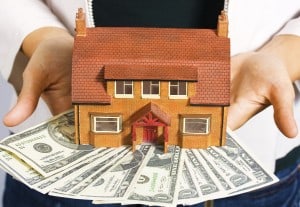Which Rental Strategy Is Right For You? Airbnb Or Traditional?

Traditional Rentals vs. Airbnb
In a traditional rental, you or your property manager advertise the rental, screen tenants and rent out the unit — typically for a one-year lease. As long as you do not violate the Fair Housing Act, you can evaluate tenants and rent to someone who meets your criteria as a qualified applicant, and with whom you feel comfortable. You receive a guaranteed amount of rent for the lease term and, once you’ve rented the unit, you often need to interact very little with your tenant.
As an Airbnb landlord, you create a property listing and set your property’s availability using a calendar. You have less control over guest screening, although you can require that potential guests email you to request a stay — which means extra work for you or your property manager corresponding with tenants.
How to Decide Which Rental Strategy Is Right for Your Location
Real estate is all about location — this is true for Airbnb, as well. If your rental properties are in a touristed area, you will see heavy demand. If there’s low tourism in your area, you will host fewer guests, in which case, a traditional rental may provide more income. If your rental properties are in a college town or near a large employer, odds are, most people looking for apartments to rent want long-term rather than short-term rentals. Let your location and the population of potential renters inform your approach as a landlord.
Earnings
Per night, you have the potential to earn more from Airbnb than traditional rentals. Hosts with steady demand can increase income using short-term rentals. However, there may be slow periods with Airbnb where you’re not hosting guests to generate income. This may work well if you’re renovating a unit, and can rent it out in between projects. Think about your goals to decide which is right.
Setup and Maintenance
Traditionally, most apartments are rented unfurnished and serviced only when something goes wrong — for example, the boiler breaks down.
With Airbnb, it’s important to have preventative maintenance that keeps everything in good working order. Otherwise, there’s a potential that bad reviews could impact your earnings. Frequent maintenance can be a good thing when you’re interested in renovating, yet don’t want to take a property off the market while completing your renovations.
Airbnb units come furnished, so you’ll need to purchase furniture, dishes, linens and other essentials. You will also need to clean the unit and do laundry in between each guest. The DIY approach is time-consuming, while hiring a cleaner is expensive. Factor this into your earnings to decide what’s right for you.
Both Airbnb and traditional rentals have their benefits, and both approaches may be part of your success as a landlord. Instead of one or the other, you can try both if you own several properties to balance your risk and rewards.
Disclaimer: All content provided here-in is subject to AAOA’s Terms of Use.















 Accessibility
Accessibility